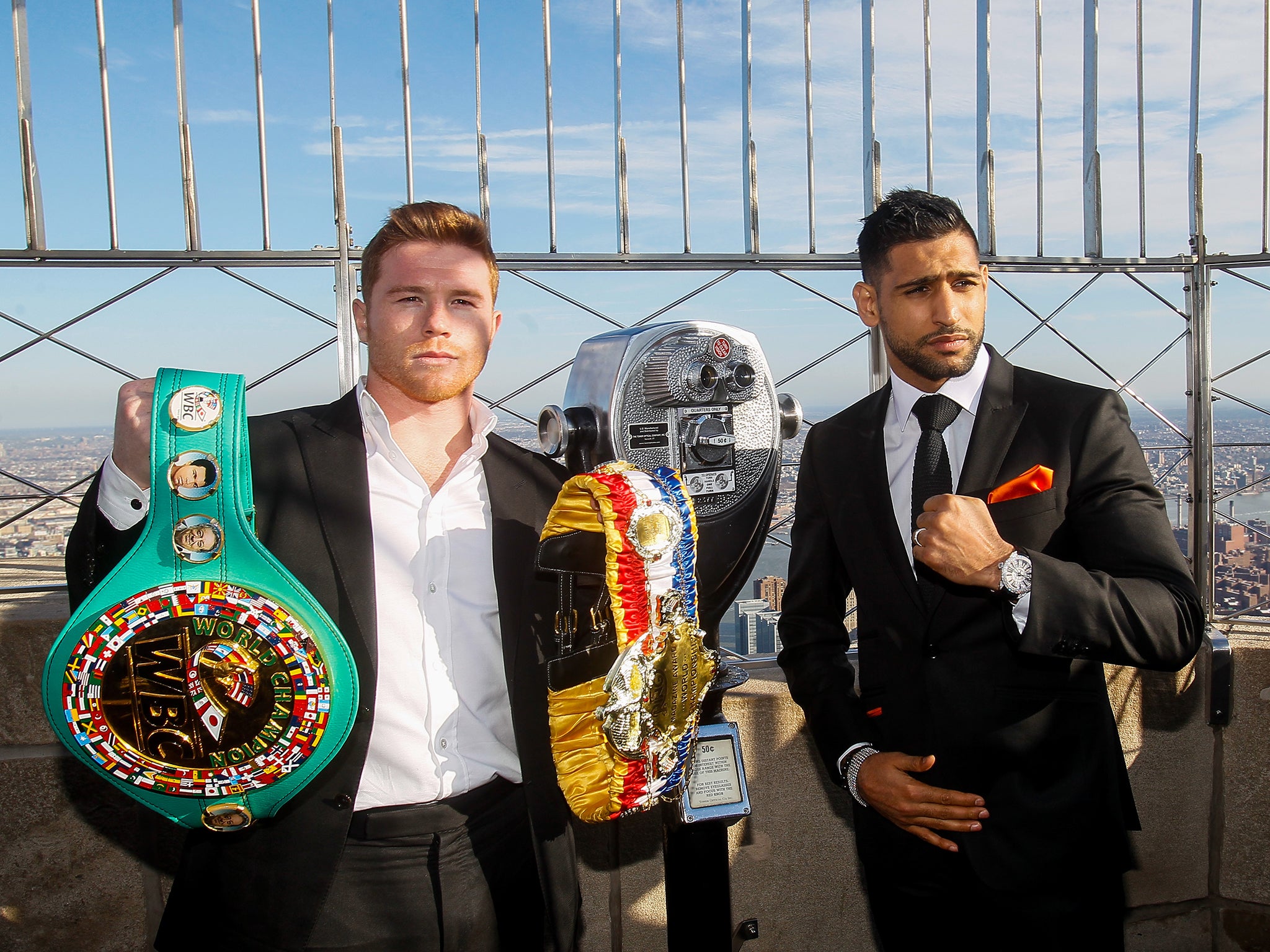Saul Alvarez shows battle of boys to men is no laughing matter - Steve Bunce
Mexican has been beaten only once in 48 fights since turning pro when he was just 15

Your support helps us to tell the story
From reproductive rights to climate change to Big Tech, The Independent is on the ground when the story is developing. Whether it's investigating the financials of Elon Musk's pro-Trump PAC or producing our latest documentary, 'The A Word', which shines a light on the American women fighting for reproductive rights, we know how important it is to parse out the facts from the messaging.
At such a critical moment in US history, we need reporters on the ground. Your donation allows us to keep sending journalists to speak to both sides of the story.
The Independent is trusted by Americans across the entire political spectrum. And unlike many other quality news outlets, we choose not to lock Americans out of our reporting and analysis with paywalls. We believe quality journalism should be available to everyone, paid for by those who can afford it.
Your support makes all the difference.Oscar De La Hoya missed a chance to sign Saul “Canelo” Alvarez when the ginger-haired Mexican was just 13 years of age.
De La Hoya won Olympic gold and world titles at six weights before turning to promoting with Golden Boy and he told the story this week in London with Alvarez, still ginger but now 25, at his side.
The pair were in London to promote the WBC middleweight title fight between Alvarez and Amir Khan, which will take place at the T-Mobile Arena, the newest and biggest venue in Las Vegas, on 7 May.
“His manager came to see me in Los Angeles,” remembered De La Hoya. “He showed me a picture of a kid, a ginger kid, and he was just 13. He told me that the kid would be a champion.
“I had no reason to doubt him, but Alvarez was 13 at the time, too young. I said come back and see me when he is 18.” De La Hoya admitted that he thought he would never hear about the boy again.
A translator whispers those words to Alvarez, who nearly smiled. Alvarez is not known for smiling, not known for showing emotion either side of the ropes. “He only smiles when he knocks out his opponents,” De La Hoya offered.
De La Hoya continues: “He came back again when he was 18 and by then I had heard enough about the kid. He was Canelo by then, a fighting hero in Mexico and, I think at 18, he had fought over 20 times. I should have listened when the man first came to see me!”
Canelo had fought 21 times before he was 18, the usual legal starting age for professionals. He was unbeaten and, after turning pro at just 15, was knocking out grown men.
That was in 2008. Now, 27 fights later, Alvarez is arguably the biggest attraction in boxing, a world champion in three weights with only one loss, back in 2013 to Floyd Mayweather. That was the only fight where the boy looked like a boy.
“The Mayweather fight made Canelo a better boxer,” insists De La Hoya. “This Canelo is better, this Canelo would beat that Mayweather. But that has gone, finished – and now he has to worry about Khan’s speed.”
The fight is for the middleweight title, which is 160lb, but it has been made at a catchweight of 155lb, which suits Khan, who had previously only ever fought as a welterweight (147lb).
Alvarez was also a welterweight a few years ago and is not a big middleweight; he is bigger than Khan but would look small against an old-fashioned middleweight.
Khan is likely to enter the ring on fight night at about 162lb and will probably be conceding 10lb in weight. Khan, however, is not concerned. “This fight is about speed and not weight, he said. “If he gains over a stone after the weigh-in, it will slow him down. It’s good for me.”
Khan knows a thing or two about fighting as a boy against the very best men. In the lightweight final at the 2004 Olympics in Athens, Khan, a slender kid of 17, was fighting Mario Kindelan, who had won the previous gold medal and was untouchable. Khan only just lost that afternoon and, when he was 18, beat Kindelan in a rematch.
“I was fighting in the world championships in Korea when I was 17, the European championships when I had just turned 17 and the Olympic Games at 17. I never had it easy,” said Khan. “Let’s see what happens when we fight.”
Five minutes later, the whispering translator informed Alvarez what Khan had just said.
It was the only time I saw him smile all day.
Join our commenting forum
Join thought-provoking conversations, follow other Independent readers and see their replies
Comments